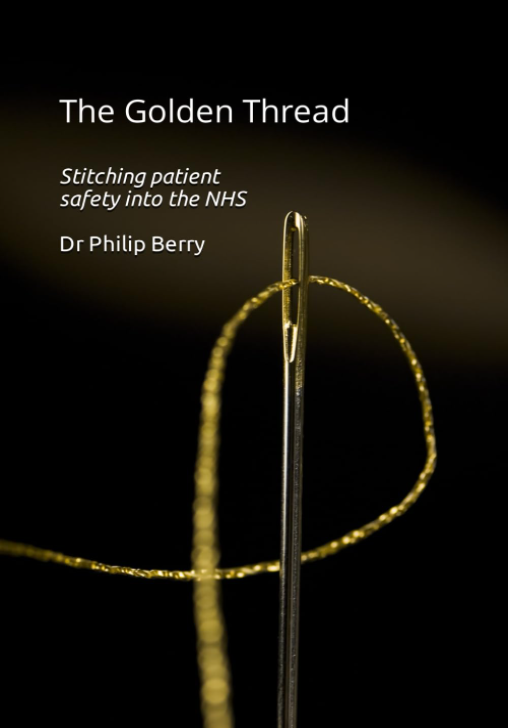
The newly installed health secretary Wes Streeting was quick to state that the NHS is broken. This, he elaborated later, is the diagnosis and we must accept it if we are to implement the correct treatment. Clichéd health-related metaphors aside, the simplicity of the statement is both powerful and risky. It is refreshing to know that the new political leadership recognises that the NHS has deteriorated. Such a judgement is quite easy for a new government to make, as all that has gone before can be blamed on others. However, a new government is new for only so long, and within a year or two people will be clamouring for evidence of improvement.
The other risk, and one that was raised by Dr Jennifer Darlow in the BMJ, is the negative effect that such a statement might have on the workforce and on patients. That’s what I’m going to enlarge on in this post.
First, the staff. What does it feel like to go to work for an organisation that is ‘officially’ broken? Our workplaces did not change overnight. The day after Wes Streeting made his statement, we entered our hospitals and practices to find that they had the same strengths and weaknesses as they did before the election. Did they feel broken to us, having had our eyes opened to the truth?
Although I see fragility, full thickness fractures are not visible on a day-to-day basis. Teams of nurse, doctors and administrative staff turn up, work hard, innovate, and respond to external crises. Patients are treated with kindness and respect, and the care that they receive is largely effective. What’s broken about that? I suppose it is at the population level, where increasing numbers on waiting lists are shown on graphs, and in the data illustrating how long patients have to wait before they are seen in emergency departments or diagnosed with cancer, that fractures become evident.
One danger of identifying that the organisation we work for as broken is that we lose heart. In such a complex system, we share a responsibility to identify areas for improvement – especially in the area of patient safety – and to work on them. We report incidents, we devote time and energy to quality improvement projects. We redesign pathways, we listen to complaints and make changes, we learn from errors. If we begin to feel that the NHS is so broken that its salvation is out of our hands, we may lose the will to address the things that are in our power to mend.
An important aspect of working for the NHS is pride. The kudos and respect that comes with a job in healthcare goes a long way to redressing some of the downsides. If the NHS becomes a tarnished brand, and both those who work for it and those who sometimes need it come to believe that it is nothing to be proud of, we will arrive at work with less of a bounce in our step. Young people who were considering a career in the NHS may go off the idea, and vacancies will go unfilled. There can be no mending without adequate staff.
What about patients? Dr Darlow focused on the importance of trust in her BMJ article. Confidence that you will be looked after, sent the correct appointments, given the right medicines and subjected to the correct surgery, are as important to well-being as the treatments themselves. If the population comes to accept that the huge organisation responsible for making them better is likely to mishandle their problem or make a mistake, they will be fearful. Only the minority have the freedom to go elsewhere. For most, the NHS is the only choice, and hearing that it is broken is both depressing and frightening.
But surely, Streeting’s words are only rhetoric. Words designed to focus the mind of his department and those he must convince in the Treasury; an effective message that cuts through the media into the hearts of the population. Siva Anandaciva, writing from the King’s Fund, wrote that this bold rhetoric achieves two things: it buys him time, and creates a platform, for reform. He also wrote that ‘in a broken system, more of the same doesn’t always work’.

That master of rhetoric and oratory, the Roman consul Cicero, would have agreed. He said, ‘Any man can make mistakes, but only an idiot persists in his error’ – replace ‘man’ for ‘state-run public health service’ and they are not too far apart. Regarding bold statements, Cicero also wrote, ‘If we are not ashamed to think it, we should not be ashamed to say it.’ That describes Streeting. To be honest, many have thought it – when caught in a spiral of frustration when trying to arrange an appointment, or waiting in a long, overrunning clinic, or wincing on an arthritic hip for over a year. Healthcare workers have also thought it, observing harm borne of delay or some organisational catastrophe. How could we not at least consider it, reading the long list of healthcare inquiries analysed in the Thirlwall report.
Streeting has made himself a political hostage to the NHS fortune. While the political cycle is 5 years, the cycle of performance in the NHS is probably longer, however much money you give it, however radical its reform. Can he do it? Can the NHS be mended? Healthcare workers are the blood and the tissue required to heal the fracture, so let us hope he can carry us along with him.
Available on Amazon – £5.99 paperback, 78p as e-book
